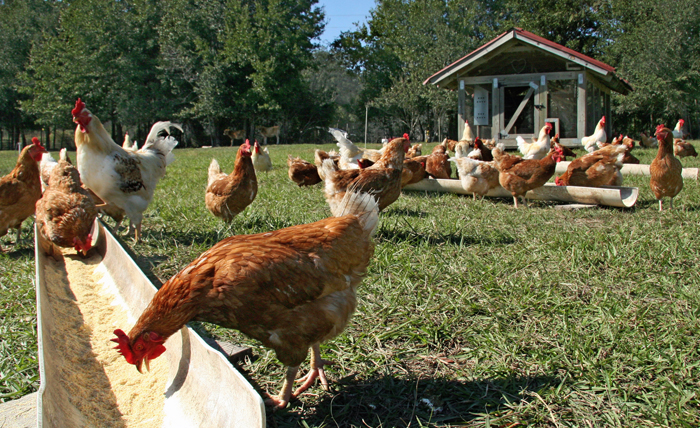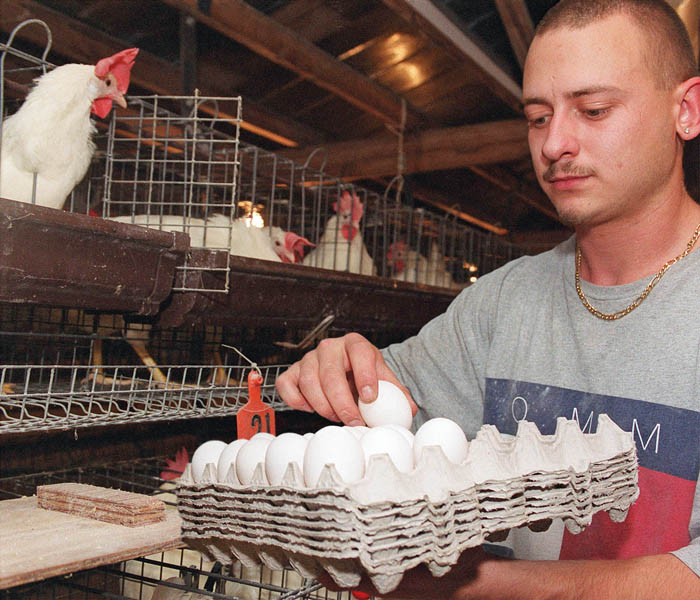Many small farms have poultry as part of their operation to supply eggs and meat for their immediate and extended family. With recent federal and state rule changes, however, it is now possible to sell both eggs and dressed poultry direct from the farm to consumers. Eggs and whole, dressed poultry can be sold through farmer’s markets, roadside stands, and even direct to restaurants for preparation for consumption.
A Limited Poultry and Egg Farm Operation is defined as a farm-based food establishment which directly produces and offers dressed poultry or whole shell eggs for sale. No additional processing or food preparation of such poultry or shell eggs is allowed under this permit category. These small farm operations are limited to up to 1,000 laying hens annually for production and sale of shell eggs, and/or up to 20,000 poultry annually for the production and sale of dressed poultry. – Florida Department of Agriculture and Consumer Services (FDACS)
With a Limited Poultry and Egg Permit you can sell up to 30 dozen eggs and/or up to 384 dressed poultry in any one week within the state of Florida. Interstate sales or Internet sales are not permitted, however. Under these guidelines poultry includes chicken, turkey, duck, goose, guinea fowl, or quail. Poultry or eggs cannot be sold wholesale to a retail outlet or other vendor under this permit. The annual permit fee is $110.
Egg Sales
Dressed Poultry Sales
Small farms can also sell whole, dressed birds. Dressed poultry shall be maintained at or below 41° before sale. There are specific label requirements for dressed poultry that include instructions for consumers on safe handling (see example below). Poultry shall be packaged and labeled with the processor’s name, farm address, the statement “Exempt P.L. 90-492,” and required Safe Handling Instructions.
 The “Safe Handling Instructions” on dressed poultry packaging label must include the following phrases:
The “Safe Handling Instructions” on dressed poultry packaging label must include the following phrases:
- Some food products may contain bacteria that could cause illness if the product is mishandled or cooked improperly. For your protection, follow these safe handling instructions.
- Keep refrigerated or frozen. Thaw in refrigerator or microwave.
- Keep raw meat and poultry separate from other foods. Wash working surfaces (including cutting boards), utensils, and hands after touching raw meat or poultry.
- Cook thoroughly.
- Keep hot foods hot. Refrigerate leftovers immediately or discard.
-
FDACS Limited Poultry and Egg farm Operation Permit Requirements
-
How Do I Legally Sell Meat from My Own Livestock and Poultry in Florida?
-
Procedures for Killing and Dressing Home Grown Fowl
-
Factors Affecting Egg Production in Backyard Chicken Flocks
- 2025 Weather Summary and 2026 1st Quarter Outlook - January 16, 2026
- 2025 Average Farmland Rental Rates, Lease Agreements, and Worker Wages Summary - January 16, 2026
- Friday Feature:1954 How to Dial Your Phone - January 16, 2026


